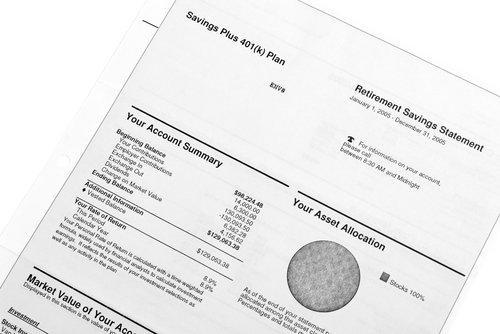Recent Blog Posts
Relationship Red Flags: Is Your Spouse Stonewalling?
Posted on February 18, 2016 in Divorce
 You and your spouse are never going to see exactly eye-to-eye on everything. In fact, there may be certain topics or behaviors that lead to very strong disagreements and, yes, possibly even fights. Of course, not all fighting is healthy for your marriage, but, when done respectfully and with a purpose, arguing occasionally can help you better understand each other. Sometimes, though, one spouse may shut down, completely blocking all avenues of communication in the face of conflict. There can be many reasons that you or spouse begin to engage in such behavior, often called stonewalling by relationship experts, but if it is not constructively addressed, stonewalling can destroy your marriage.
You and your spouse are never going to see exactly eye-to-eye on everything. In fact, there may be certain topics or behaviors that lead to very strong disagreements and, yes, possibly even fights. Of course, not all fighting is healthy for your marriage, but, when done respectfully and with a purpose, arguing occasionally can help you better understand each other. Sometimes, though, one spouse may shut down, completely blocking all avenues of communication in the face of conflict. There can be many reasons that you or spouse begin to engage in such behavior, often called stonewalling by relationship experts, but if it is not constructively addressed, stonewalling can destroy your marriage.
Two Different Types
Stonewalling can take several forms. Aggressive stonewalling may be used by a more controlling or manipulative partner simply because he or she knows it will upset his or her spouse. By refusing to engage or communicate, an aggressive stonewaller can feel like he or she is control over the situation. Defensive stonewalling, as you might expect, is just the opposite. A spouse who feels threatened or overwhelmed may retreat into him- or herself, unable—and sometimes unwilling—to deal directly with the issues at hand.
Continue Reading ››
Family Debt Can Impact Well-Being of Children
Posted on February 11, 2016 in Finances and Divorce
 Financial debt is a major cause for concern around the United States, at the individual and family levels, as well as on collective scale. Families fractured by divorce or other type of similar stresses may be particular susceptible to growing debt, as financial obligations may be harder to meet on a single income, combined with a countless other contributing factors. However, a recently-published study suggests that parents with certain types of debt may place their children at increased risk for behavioral problems in the future.
Financial debt is a major cause for concern around the United States, at the individual and family levels, as well as on collective scale. Families fractured by divorce or other type of similar stresses may be particular susceptible to growing debt, as financial obligations may be harder to meet on a single income, combined with a countless other contributing factors. However, a recently-published study suggests that parents with certain types of debt may place their children at increased risk for behavioral problems in the future.
Quality of Life Connections
The study was conducted by researchers at the Institute for Research on Poverty at the University of Wisconsin-Madison and looked at data from more than 9,000 children and their mothers over a period of nearly 40 years. The research also categorized debt into four distinct types: home, education, automobile, and unsecured debt, which included credit cards, certain loans, and medical debt. Looking for possible connections, the team also examined the socio-emotional health and behavioral concerns of the participating children.
Continue Reading ››
Increased Privacy in Mediation
Posted on February 09, 2016 in Mediation
 If you were asked to picture a divorce proceeding, would you think about a courtroom with a husband on one side, a wife on the other, and a judge in the middle to officiate the battle? While the image in your head may not be quite so stereotypical, it is likely that your concept—like that of most people—is something similar. What you may not realize, though, is that the vast majority of civil cases, including divorce, are not decided in the courtroom; instead, they are negotiated in other ways and a judge is only required to approve the settlement and enter it as part the judgment. Mediation is among the most common methods used to reach an agreement in a divorce, and the process offers a number of advantages, including time and cost savings, flexibility, and increased participation from both parties. There is one additional benefit, however, that is often overlooked: a dramatically increased sense of privacy and security.
If you were asked to picture a divorce proceeding, would you think about a courtroom with a husband on one side, a wife on the other, and a judge in the middle to officiate the battle? While the image in your head may not be quite so stereotypical, it is likely that your concept—like that of most people—is something similar. What you may not realize, though, is that the vast majority of civil cases, including divorce, are not decided in the courtroom; instead, they are negotiated in other ways and a judge is only required to approve the settlement and enter it as part the judgment. Mediation is among the most common methods used to reach an agreement in a divorce, and the process offers a number of advantages, including time and cost savings, flexibility, and increased participation from both parties. There is one additional benefit, however, that is often overlooked: a dramatically increased sense of privacy and security.
Continue Reading ››
Negotiate a Workable Parenting Time Agreement
Posted on February 04, 2016 in Child Custody
 When you are forced to consider how you will share parenting responsibilities following a divorce or a separation, your initial feelings may be very confusing. It can be quite overwhelming to think about not being with your child all of the time, but you probably realize how important it is for your child to have a strong relationship with the other parent. Finding common ground during a difficult time can be very challenging, but a mutual commitment to finding a cooperative solution can go a long way in providing security and happiness for your child.
When you are forced to consider how you will share parenting responsibilities following a divorce or a separation, your initial feelings may be very confusing. It can be quite overwhelming to think about not being with your child all of the time, but you probably realize how important it is for your child to have a strong relationship with the other parent. Finding common ground during a difficult time can be very challenging, but a mutual commitment to finding a cooperative solution can go a long way in providing security and happiness for your child.
Visitation is Now Parenting Time
Recent changes to the Illinois Marriage and Dissolution of Marriage Act have amended the language used to describe a co-parent’s time with his or her child. For many years, any parent who was not deemed unfit or danger to the child was presumed to have rights of reasonable "visitation." While the intention of the law may have been reasonable, referring to a parent’s time with his or her child visitation could have the effect of making the parent feel like an outsider or an interloper in the child’s life.
Continue Reading ››
The End of At-Fault Divorce in Illinois
Posted on February 02, 2016 in Divorce
 For the last three decades or so, a couple looking to end their marriage in Illinois have had the option to do so on the “no-fault” grounds of irreconcilable differences. This alternative to divorce on more “traditional” fault grounds has been long seen as a way of reducing contentious and complications in the divorce process. Of course, even no-fault divorces can have their challenges, but the simpler proceedings have led to the decline of divorce filings on grounds of fault. Now, recent law changes have officially put an end to at-fault divorce in the state, and updated other provisions to help facilitate more efficient dissolutions when appropriate.
For the last three decades or so, a couple looking to end their marriage in Illinois have had the option to do so on the “no-fault” grounds of irreconcilable differences. This alternative to divorce on more “traditional” fault grounds has been long seen as a way of reducing contentious and complications in the divorce process. Of course, even no-fault divorces can have their challenges, but the simpler proceedings have led to the decline of divorce filings on grounds of fault. Now, recent law changes have officially put an end to at-fault divorce in the state, and updated other provisions to help facilitate more efficient dissolutions when appropriate.
Burden of Proof
Prior to 2016, when a spouse filed for divorce citing one of the many possible fault grounds—including adultery, mental or physical cruelty, abandonment, and habitual substance abuse—he or she would be required to provide evidence of the other spouse’s behavior. As you might expect, this could often be quite difficult, as spouses inclined to engage in such activities typically would go to great lengths to hide their actions. For example, despite have serious suspicions, actually proving an extramarital affair to the court could be nearly impossible.
Continue Reading ››
Child Custody Modification Requirements
Posted on January 28, 2016 in Child Custody
 The circumstances surrounding a family separating in divorce are bound to change over time. As a result, one or both parties to the divorce may later seek to change the orders that set custody and visitation. Both child custody and visitation can get modified in a child’s best interest when a party requesting modification can show that circumstances have changed significantly since the initial order was entered.
The circumstances surrounding a family separating in divorce are bound to change over time. As a result, one or both parties to the divorce may later seek to change the orders that set custody and visitation. Both child custody and visitation can get modified in a child’s best interest when a party requesting modification can show that circumstances have changed significantly since the initial order was entered.
Former spouses may initially seek to try to come to a mutually agreeable agreement with regards to custody in order to avoid the courts. This may be a good approach, especially if the parents are on good terms. Any agreements the parties finalize are entered with the court to solidify it as the new custody or visitation agreement.
Continue Reading ››
Dividing Retirement Accounts in Divorce
Posted on January 21, 2016 in Finances and Divorce
 In some cases, the division of the couple’s financial assets in a divorce can extend to accounts that a person may consider to be a personal benefit, such as a retirement account. Under Illinois law, a divorcing spouse may be entitled to part of their spouse’s retirement account in some cases. Just as there are rules and guidelines as to the division of marital property, there are rules and guidelines when it comes to the division of retirement accounts.
In some cases, the division of the couple’s financial assets in a divorce can extend to accounts that a person may consider to be a personal benefit, such as a retirement account. Under Illinois law, a divorcing spouse may be entitled to part of their spouse’s retirement account in some cases. Just as there are rules and guidelines as to the division of marital property, there are rules and guidelines when it comes to the division of retirement accounts.
The Illinois law on the dissolution of marriages holds that pension benefits and other retirement plans that were acquired after a marriage and before a legal dissolution or declaration of invalidity of the marriage are marital property. As such, retirement benefits are divided under the same rules as other marital property between the parties, regardless of which party worked and had the retirement payments deducted from their pay. The determination of the value of a retirement account or pension benefits is done according to the Illinois Pension Code, which recognizes this qualification of pension benefits as marital property.
Continue Reading ››
Child Support Arrears: Owing Support after a Child's Eighteenth Birthday
Posted on January 19, 2016 in Child Support
 When child support is ordered, the payments are based on the income of the parent who is ordered to pay it. Income is considered from different sources, and a percentage is calculated based on Illinois law and the number of children involved. However, this does not mean that the amount will always be affordable to the parent, and the law allows a parent who loses employment or other forms of income to appeal to a court to seek lower payments. If a parent fails to seek modification of the child support after losing income, they may end up getting behind and owing arrearages on the child support.
When child support is ordered, the payments are based on the income of the parent who is ordered to pay it. Income is considered from different sources, and a percentage is calculated based on Illinois law and the number of children involved. However, this does not mean that the amount will always be affordable to the parent, and the law allows a parent who loses employment or other forms of income to appeal to a court to seek lower payments. If a parent fails to seek modification of the child support after losing income, they may end up getting behind and owing arrearages on the child support.
Arrearages owed on child support do not go away. A parent may be ordered to keep paying child support based on arrearages long after the children have reached their eighteenth birthdays. While this feels unfair, especially since the child is not likely to be receiving the support payments directly, it is important to remember that the arrearages payments are not new support payments; they are meant to cover child support that the parent was supposed to be making in the past and never did. When making payments on arrearages, it is important to make sure that the calculations are done to reflect this and new child support payments are not added.
Continue Reading ››
Court Ordered Supervised Parenting Time
Posted on January 14, 2016 in Child Custody
 Court ordered visitations after a court decides a custody issue is supposed to be made on the same basis as the custody issue; that is, visitation should be awarded if it is in the best interest of the child. However, even if the court finds that visitation is in the best interest of the child, it may also find that the visitation should be supervised.
Court ordered visitations after a court decides a custody issue is supposed to be made on the same basis as the custody issue; that is, visitation should be awarded if it is in the best interest of the child. However, even if the court finds that visitation is in the best interest of the child, it may also find that the visitation should be supervised.
Following changes to the Illinois Marriage and Dissolution of Marriage law that took effect on January 1, 2016, Illinois courts will now refer to visitation as parenting time. Parents are usually encouraged to work out issues relating to their children before presenting an agreement to the court. In cases where the parties cannot agree, the court may make determinations regarding parenting time. In making this determination, both parents are presumed to be fit parents, and limitations on parenting time are not to be placed unless the court finds that granting parenting time will seriously endanger the child’s physical, mental, moral, or emotional health. The court may also consider how the parenting time would impact a child’s emotional development.
Continue Reading ››
The Importance of Financial Disclosures to Prenuptial and Postnuptial Agreements
Posted on January 12, 2016 in Prenuptial and Postnuptial Agreements
 As unromantic as it may sound, a marriage can be compared to a contract, with two people coming together and agreeing to form a partnership under certain terms. In some cases, when couples are contemplating marriage and even after they are married, they may enter into additional agreements to ensure their financial interests are secure in the event of a divorce. There are many reasons why couples may choose to enter into these prenuptial and postnuptial agreements, and there are numerous other concerns that they have to keep in mind when executing them. One important aspect of both kinds of agreements is the legal need for all parties to be aware of the assets at stake.
As unromantic as it may sound, a marriage can be compared to a contract, with two people coming together and agreeing to form a partnership under certain terms. In some cases, when couples are contemplating marriage and even after they are married, they may enter into additional agreements to ensure their financial interests are secure in the event of a divorce. There are many reasons why couples may choose to enter into these prenuptial and postnuptial agreements, and there are numerous other concerns that they have to keep in mind when executing them. One important aspect of both kinds of agreements is the legal need for all parties to be aware of the assets at stake.
Continue Reading ››







 You and your spouse are never going to see exactly eye-to-eye on everything. In fact, there may be certain topics or behaviors that lead to very strong disagreements and, yes, possibly even fights. Of course, not all fighting is healthy for your marriage, but, when done respectfully and with a purpose, arguing occasionally can help you better understand each other. Sometimes, though, one spouse may shut down, completely blocking all avenues of communication in the face of conflict. There can be many reasons that you or spouse begin to engage in such behavior, often called stonewalling by relationship experts, but if it is not constructively addressed, stonewalling can
You and your spouse are never going to see exactly eye-to-eye on everything. In fact, there may be certain topics or behaviors that lead to very strong disagreements and, yes, possibly even fights. Of course, not all fighting is healthy for your marriage, but, when done respectfully and with a purpose, arguing occasionally can help you better understand each other. Sometimes, though, one spouse may shut down, completely blocking all avenues of communication in the face of conflict. There can be many reasons that you or spouse begin to engage in such behavior, often called stonewalling by relationship experts, but if it is not constructively addressed, stonewalling can  Financial debt is a major cause for concern around the United States, at the individual and family levels, as well as on collective scale. Families fractured by
Financial debt is a major cause for concern around the United States, at the individual and family levels, as well as on collective scale. Families fractured by  If you were asked to picture a divorce proceeding, would you think about a courtroom with a husband on one side, a wife on the other, and a judge in the middle to officiate the battle? While the image in your head may not be quite so stereotypical, it is likely that your concept—like that of most people—is something similar. What you may not realize, though, is that the vast majority of civil cases, including divorce, are not decided in the courtroom; instead, they are negotiated in other ways and a judge is only required to approve the settlement and enter it as part the judgment.
If you were asked to picture a divorce proceeding, would you think about a courtroom with a husband on one side, a wife on the other, and a judge in the middle to officiate the battle? While the image in your head may not be quite so stereotypical, it is likely that your concept—like that of most people—is something similar. What you may not realize, though, is that the vast majority of civil cases, including divorce, are not decided in the courtroom; instead, they are negotiated in other ways and a judge is only required to approve the settlement and enter it as part the judgment.  When you are forced to consider how you will share parenting responsibilities following a divorce or a separation, your initial feelings may be very confusing. It can be quite overwhelming to think about not
When you are forced to consider how you will share parenting responsibilities following a divorce or a separation, your initial feelings may be very confusing. It can be quite overwhelming to think about not  For the last three decades or so, a couple looking to end their marriage in Illinois have had the option to do so on the “no-fault” grounds of irreconcilable differences. This alternative to
For the last three decades or so, a couple looking to end their marriage in Illinois have had the option to do so on the “no-fault” grounds of irreconcilable differences. This alternative to  The circumstances surrounding a family separating in divorce are bound to change over time. As a result, one or both parties to the divorce may later seek to change the orders that set
The circumstances surrounding a family separating in divorce are bound to change over time. As a result, one or both parties to the divorce may later seek to change the orders that set  In some cases, the
In some cases, the  When
When  Court ordered
Court ordered  As unromantic as it may sound, a marriage can be compared to a contract, with two people coming together and agreeing to form a partnership under certain terms. In some cases, when couples are contemplating marriage and even after they are married, they may enter into additional agreements to ensure their financial interests are secure in the event of a divorce. There are many reasons why couples may choose to enter into these
As unromantic as it may sound, a marriage can be compared to a contract, with two people coming together and agreeing to form a partnership under certain terms. In some cases, when couples are contemplating marriage and even after they are married, they may enter into additional agreements to ensure their financial interests are secure in the event of a divorce. There are many reasons why couples may choose to enter into these 
